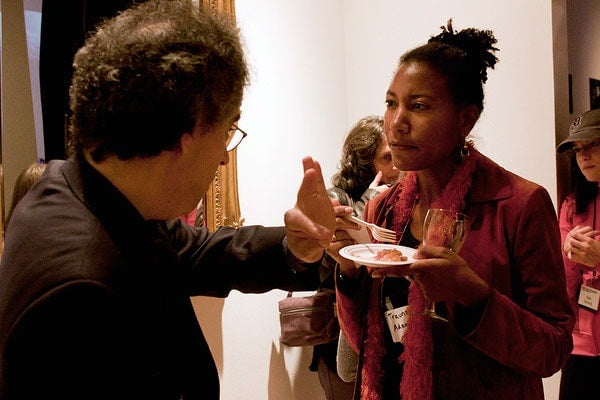
Schmoozing: it may feel bad or even "dirty" but it works
Published: September 12, 2014
If schmoozing for work leaves you with a certain 'ick' factor, that's not just awkwardness you're feeling. Professional networking can create feelings of moral impurity and physical dirtiness, researchers say.
That can hold people back from networking more, which can in turn reduce career opportunities and lower job performance, says study co-author Tiziana Casciaro, an associate professor of organizational behaviour and human resource management at the University of Toronto's Rotman School of Management. Called The Contaminating Effects of Building Instrumental Ties; How Networking Can Make Us Feel Dirty, the study was co-written with fellow researchers Professor Francesca Gino of Harvard Business School and Professor Maryam Kouchaki at Northwestern University's Kellogg School of Management.
The study is garnering attention around the world. (Listen to Casciaro's interview with Matt Galloway on CBC Radio's Metro Morning.) (Read The Times of India article.)
In professional networking, "people feel that they cannot justify their actions to themselves, and the lack of justification comes from the difficulty people have in framing some forms of networking as motivated by a concern for other people versus a selfish concern," says Casciaro, who researches networks and organizations.
Despite the importance of networking in the business world, there has been little study of its psychological impacts. The findings in this study are based on several laboratory experiments, in addition to a study of lawyers at a large North American legal firm.
Significantly, people who had more power in the office were less likely to report feeling dirty when it came to networking, and engaged in it more often. That effect can make it harder to penetrate existing power structures, because it means those already in power are more comfortable with networking and continue to reinforce and advance their positions. By contrast, those with less power feel more tainted by networking – even though they need it the most – and may have a harder time advancing themselves or improving their job performance.
Those negative feelings can be overcome when people start to see networking as being about more than just themselves, such as an opportunity to develop the networker's knowledge of their industry, with the benefit being passed on to whomever they work with, says Casciaro.
Networking can also start to feel more like a two-way street when people see themselves as having something to offer, even if they're still an outsider or junior in the business.
"Don't underestimate what you can give," says Casciaro.
The study is forthcoming in Administrative Science Quarterly.
Ken McGuffin is a writer with the Rotman School of Management at the University of Toronto.


